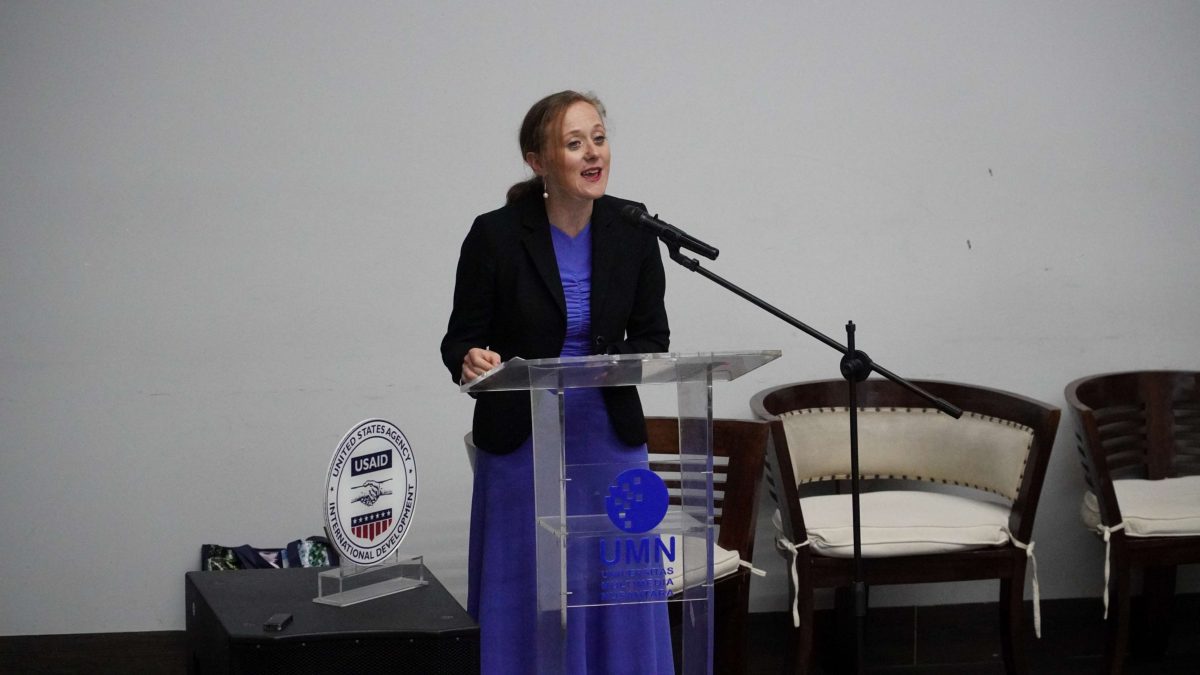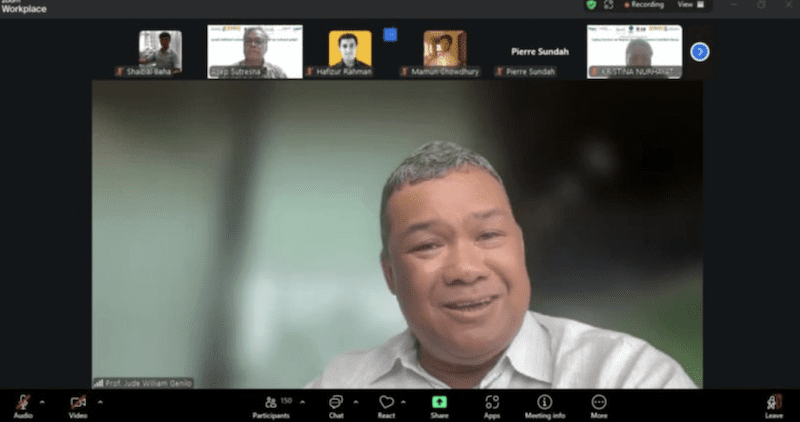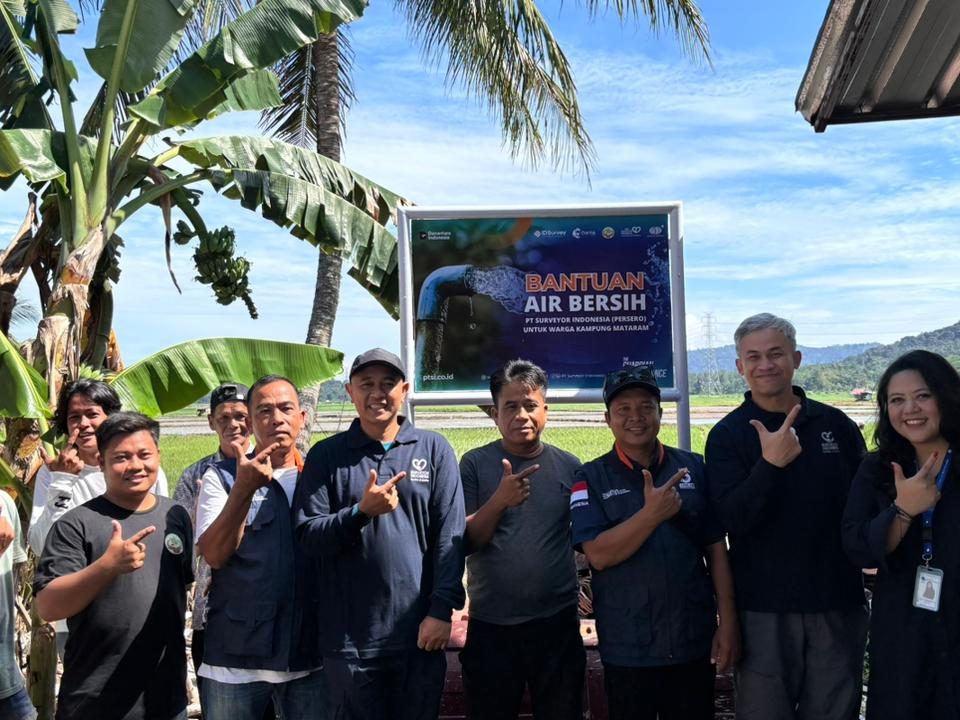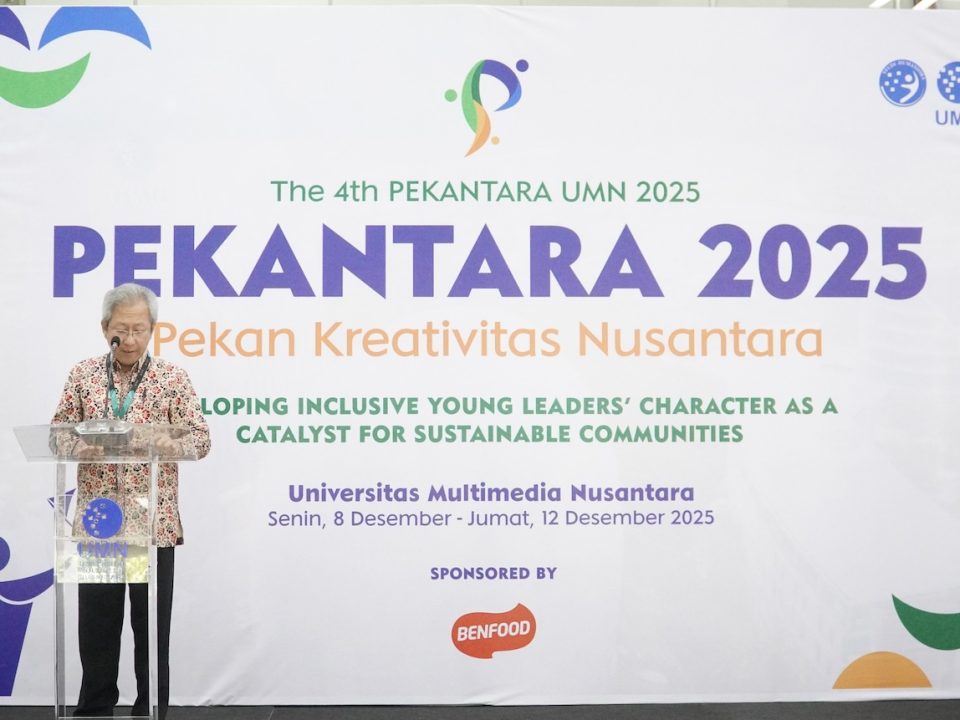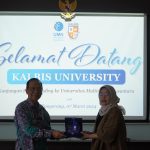
UMN Welcomes Kalbis University for a Comparative Study
April 2, 2024
Sharing Journalistic Experience in National Geographic Indonesia’s 19th Anniversary Celebration
April 3, 2024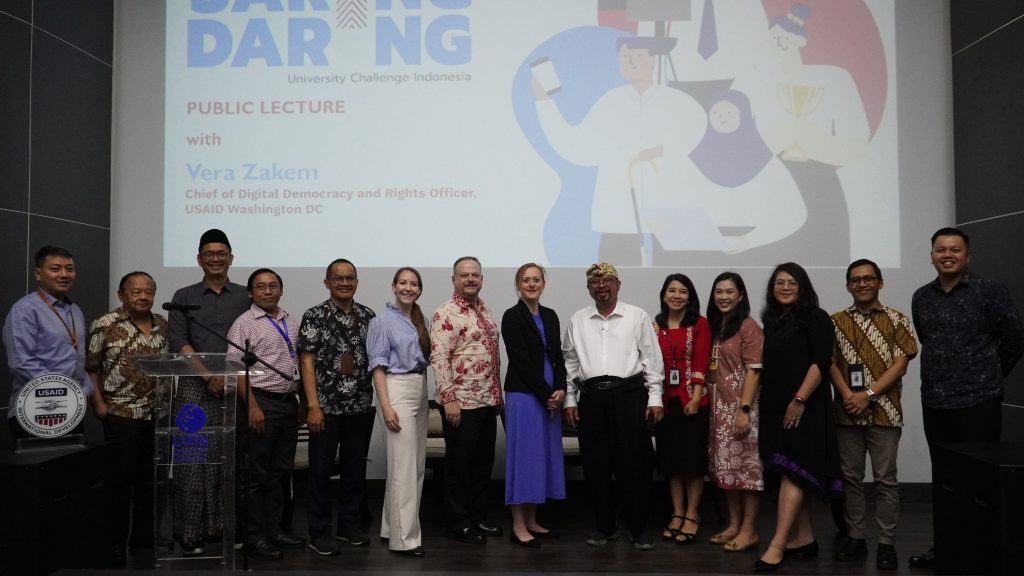
(Doc. Marketing Communications of UMN)
TANGERANG – To strengthen democracy in the modern era, Universitas Multimedia Nusantara (UMN) invited Vera Zakem, Chief of Digital Democracy and Rights Officer, USAID, Washington DC, to discuss digital democracy and rights in a public lecture themed “Empowering Tomorrow’s Voices: Uniting Youth for Digital Democracy and Human Rights.” The public lecture was attended by several UMN leaders and representatives, as well as Vera’s team.
“Indonesia is among the roughest social media users, but we wonder what they do with their social media. If they use social media solely for entertainment or jokes, that will be useless. We are lucky to have a special distinguished speaker from the US to see if literacy is greatly needed to foster democracy,” Dr. Ninok Leksono, M.A., the Rector of UMN, said, opening the meeting.
The Rise of Digital Repression
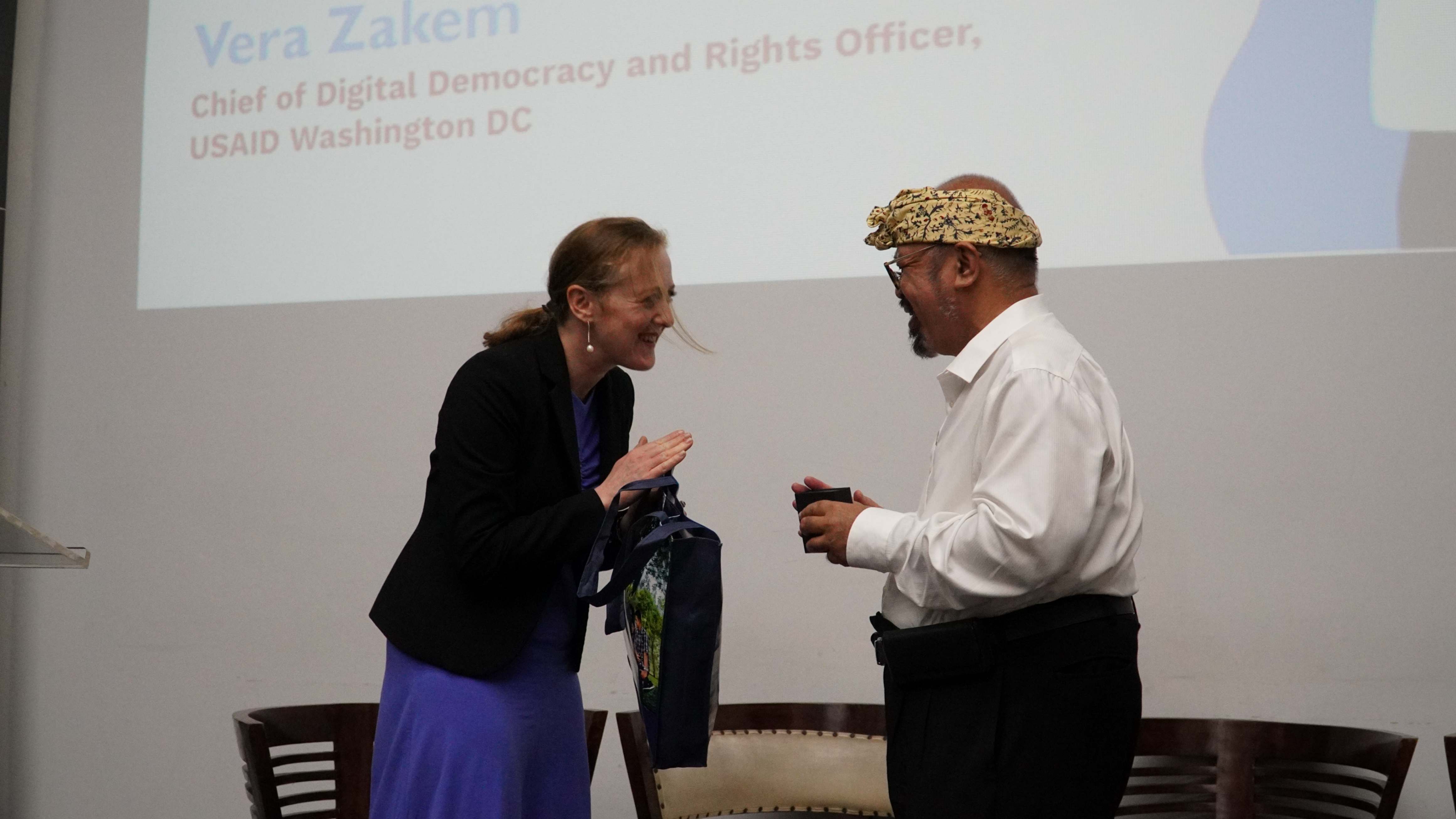
(Doc. Marketing Communications of UMN)
Starting the lecture, Vera discussed digital democracy and information integrity. The rapid development of the adaptation of digital technology is transforming the world; how can we develop digital ecosystems that support democratic values and human rights?
Like all things, digital technology development has pros and cons. Vera shared that digital technology has the power to do good things like spur economic growth, improve development outcomes, and lift millions of people out of poverty.
But while digital tools have immense potential to help people live more free and prosperous lives, they also present significant risks to citizen privacy data, freedom of the press, and, fundamentally, individual freedom of expression.
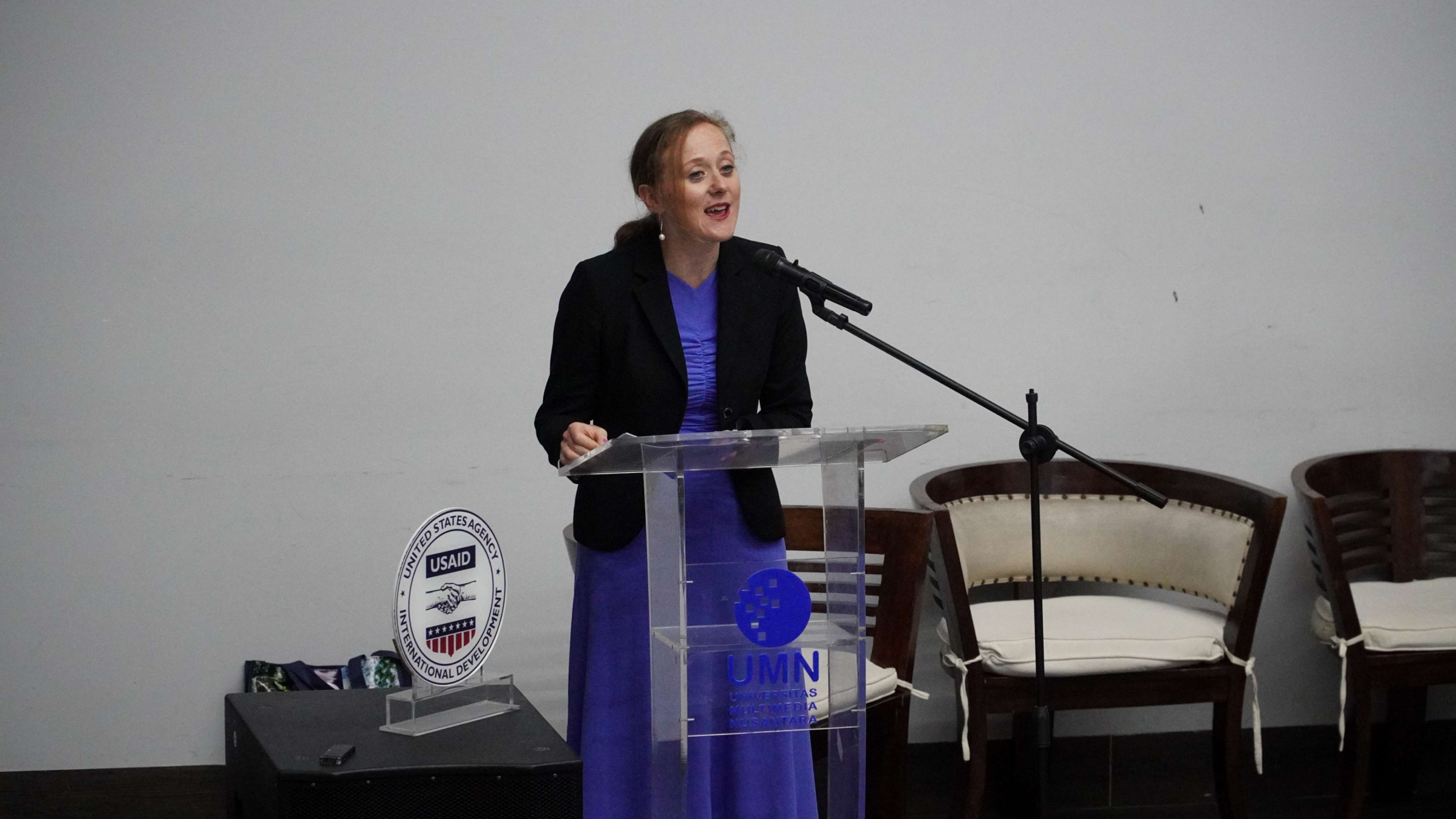
(Doc. Marketing Communications of UMN)
“Authoritarians and malign actors, whoever they might be, wherever they might be, can use artificial intelligence and other emerging technologies to propagate false narratives and spread online hate speech and harassment at scale. They can target civilians and citizens, silencing youth voices and manipulating public opinion,” Vera said.
Now, as our lives are increasingly intertwined with technology devices, digital repression has become an important tool for control. This is something that we’re trying to address in digital democracy.
The Internet was initially envisioned as the ultimate space for freedom of speech and independence. Unfortunately, in some countries, the digital spaces of openness, communication, and cooperation became a tool of censorship, repression, and surveillance.
She then proceeded to share some examples of the dangers faced by the existence of AI and technological advancement. One aspect she emphasized was authoritarians using the digital sphere to silence and limit dissent.
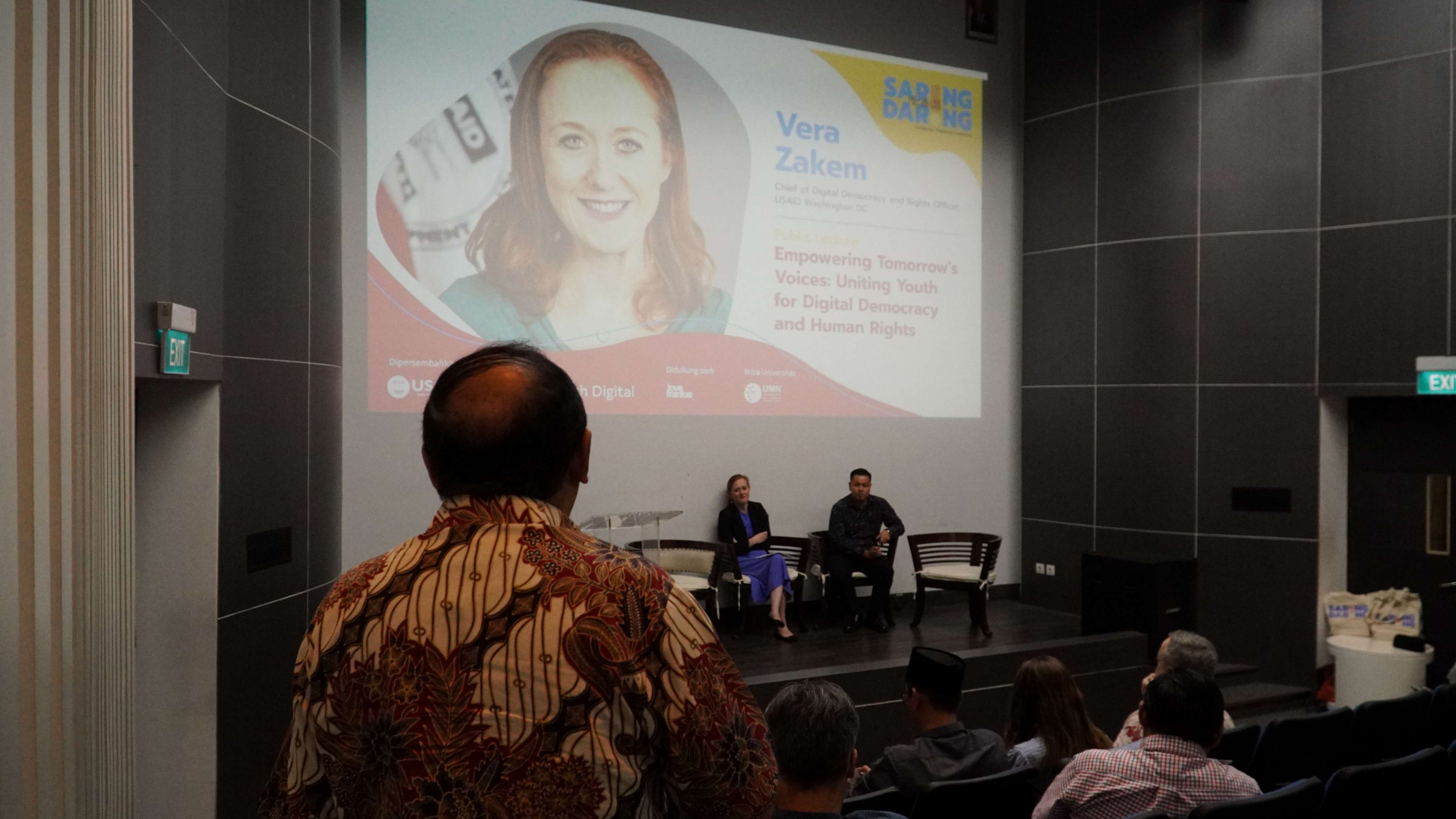
(Doc. Marketing Communications of UMN)
“Now, authoritarians are mimicking the language of democracy and rights in the digital space, working to their own ends and discrediting the terms. For example, one way they’re doing this is through the legal and regulatory system. One is the European General Data Protection Regulation, which protects personal information in the EU and can be used as a tool of repression if distorted by authoritarian regimes,” Vera explained.
Most authoritarians will make use of “Fake News Laws.” Vera explained that they make it seem that they are trying to address and solve disinformation when, in reality, they are trying to criminalize freedom of speech.
“Repressive governments are using those fake laws to, again, not just censor but control the information that citizens receive. Now, authoritarians use a range of these justification capacities laws to repress people. Some of them may include national security justifications, cybersecurity and cybercrime, anti-libel and defamation, telecommunication codes, and other rules, ” Vera shared.
Digital Democracy: The Definition and Its Benefits
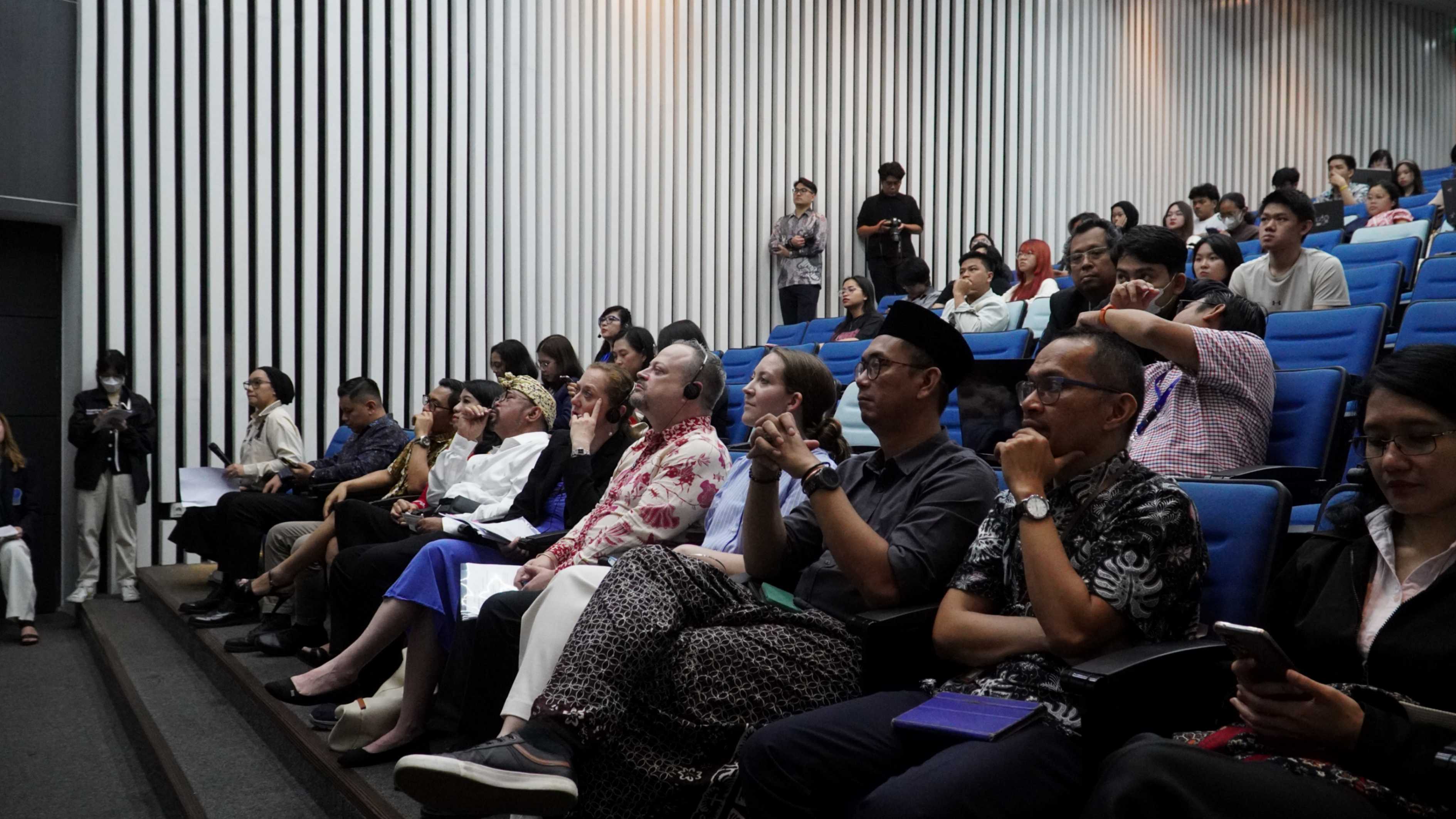
(Doc. Marketing Communications of UMN)
To counter digital repression, the term digital democracy exists. Vera explained that In the U.S. government, USAID has coined the term digital democracy, and many others are starting to use the term.
Digital democracy is a context where all stakeholders design, develop, deploy, govern, and use digital technologies in line with democratic values and fundamental respect for international human rights.
“Ultimately, when we say when we work on digital democracy, we mean that the work focuses on ensuring and creating those rights– respecting digital ecosystems wherever they are. But building digital democracy doesn’t mean that we copy some country’s model, not at all,” Vera explained.
“It means that we work to make the architecture of the Internet, the laws, the regulations, the physical infrastructure, and the digital economy open, inclusive, secure, and rights-respecting in each country. The default is democracy, not repression. In the context of USAID, we work to advance those rights-respecting approaches to technology,” Vera added.
The Role of Young People in Achieving Digital Democracy
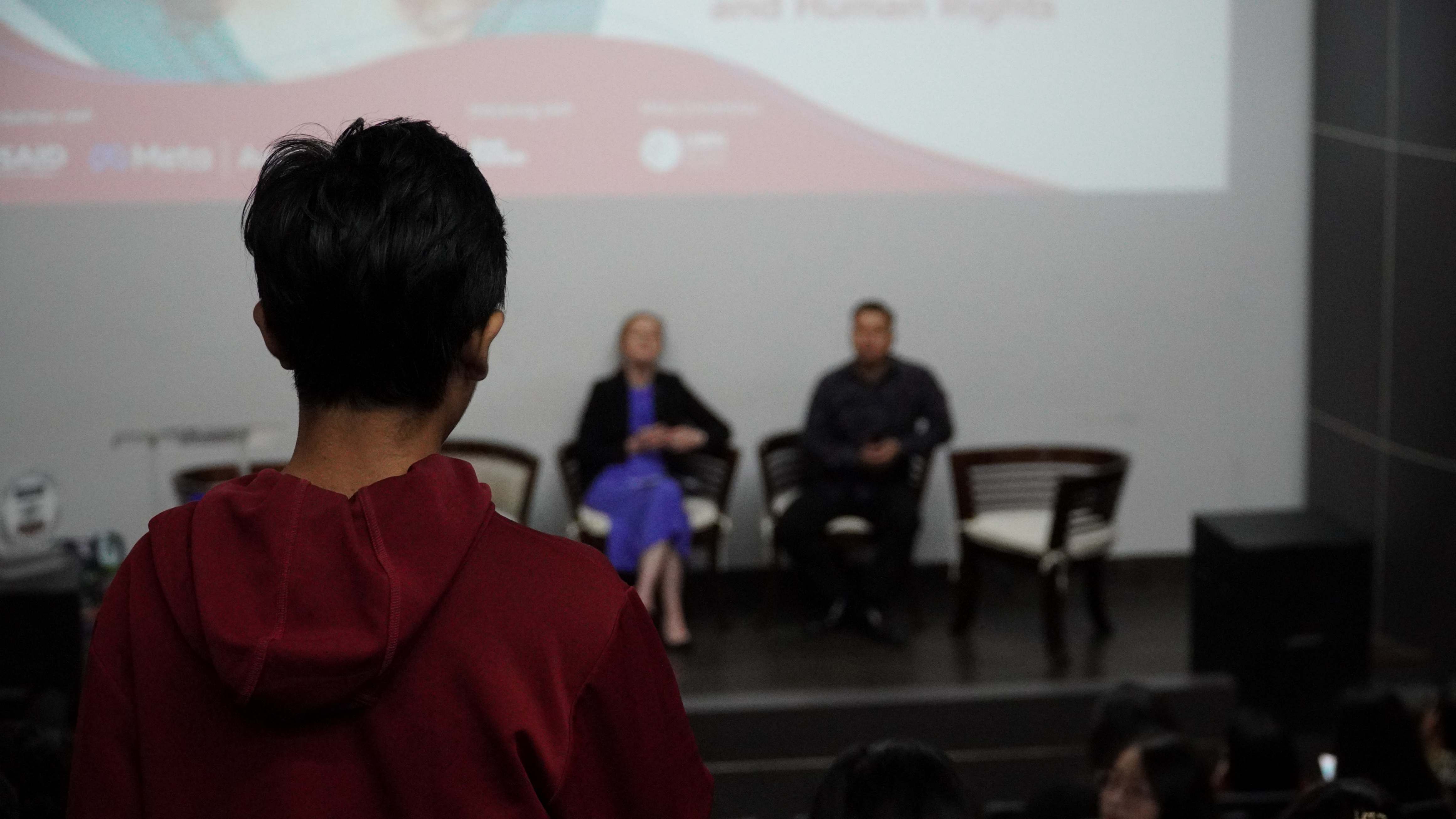
(Doc. Marketing Communications of UMN)
According to Vera, currently, Indonesian youth’s digital literacy rate is one of the lowest amongst the ASEAN states at 62% in comparison to the average, which is 70%. There needs to be improvement to this number as a country with a huge number of social media users. Vera believes the Indonesian youth can actively contribute to creating a safe and inclusive digital environment.
Vera shared that USAID has programs to promote digital literacy, critical thinking, and online positive communication among youth in Indonesia, and also empowering young people in the digital ecosystem through organizations like the International Youth Digital Leadership Council.
“As digital technology continues to transform our world, we need to ensure that the youth voice is quite literally at the forefront. It’s not just providing the opportunity for young generations to voice their opinions, but stepping aside to let them lead. We all need you to lead on critical decisions and create a safe and empowered digital future,” Vera said. Youth participation can make more inclusive digital laws.
Looking towards Indonesia’s future, Vera said that we should consider the importance of digital democracy. As the world’s 3rd most populist democracy and 4th most populist country, Indonesia should be a leader in this space. Indonesia’s youth are already playing a major role in shaping the country’s / presidential election alone. With this kind of presence, there’s greater responsibility and bigger opportunities.
“It is up to you to think critically about the information you are consuming, the information you receive, and what you share on your platforms. One of my slogans is ‘think before you click’,” Vera emphasized.
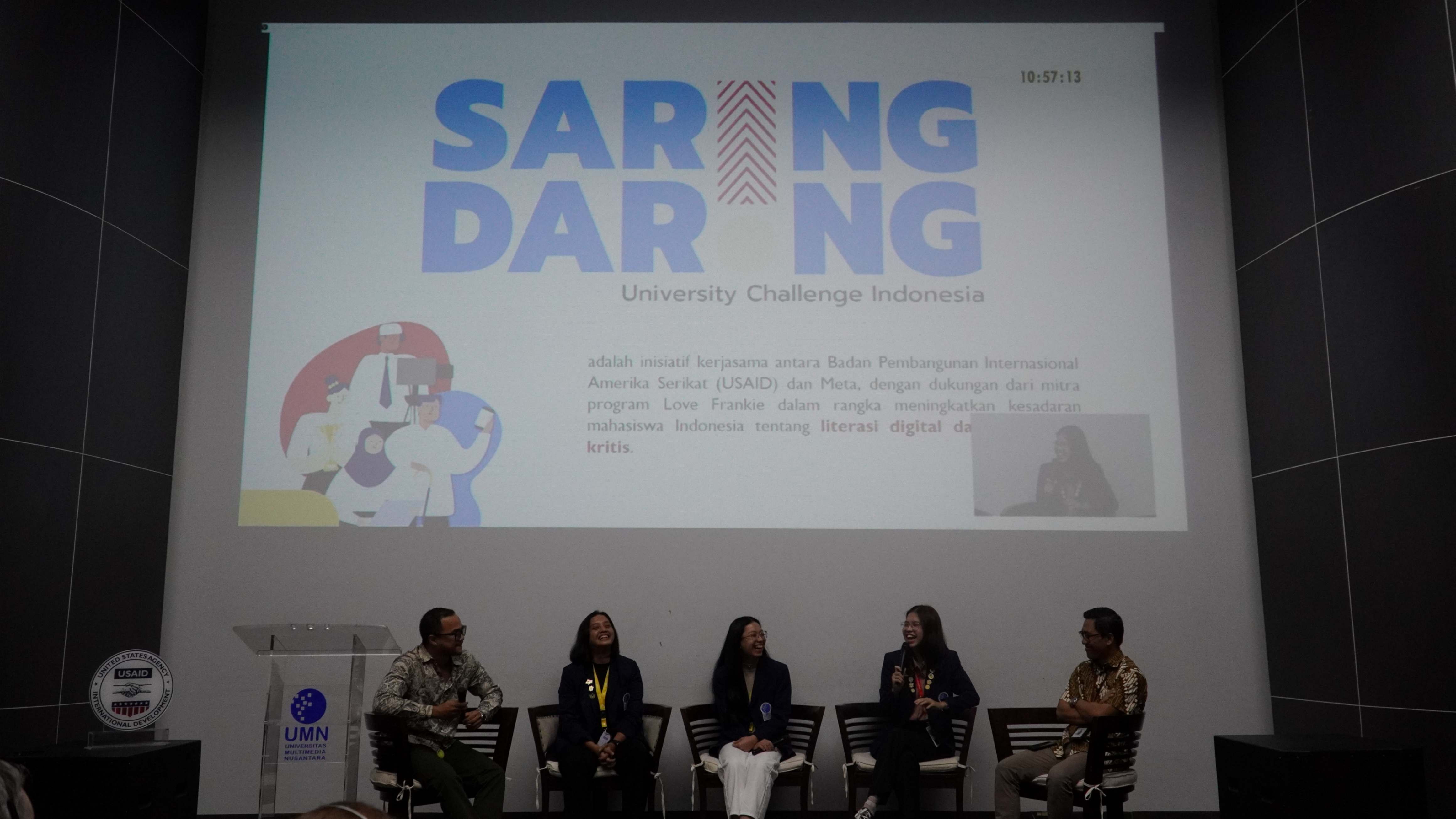
(Doc. Marketing Communications of UMN)
At the end of the session, the students participated in the “Saring Daring University Challenge” program. The program is a collaboration between USAID, Meta, and Love Frankie. The public lecture went smoothly, and we hope this session can encourage students to become more digitally literate and make a difference in the digital ecosystem in Indonesia!
By Levina Chrestella Theodora
English translation by Levina Chrestella Theodora
Kuliah di Jakarta untuk jurusan program studi Informatika| Sistem Informasi | Teknik Komputer | Teknik Elektro | Teknik Fisika | Akuntansi | Manajemen| Komunikasi Strategis | Jurnalistik | Desain Komunikasi Visual | Film dan Animasi | Arsitektur | D3 Perhotelan , di Universitas Multimedia Nusantara. www.umn.ac.id

